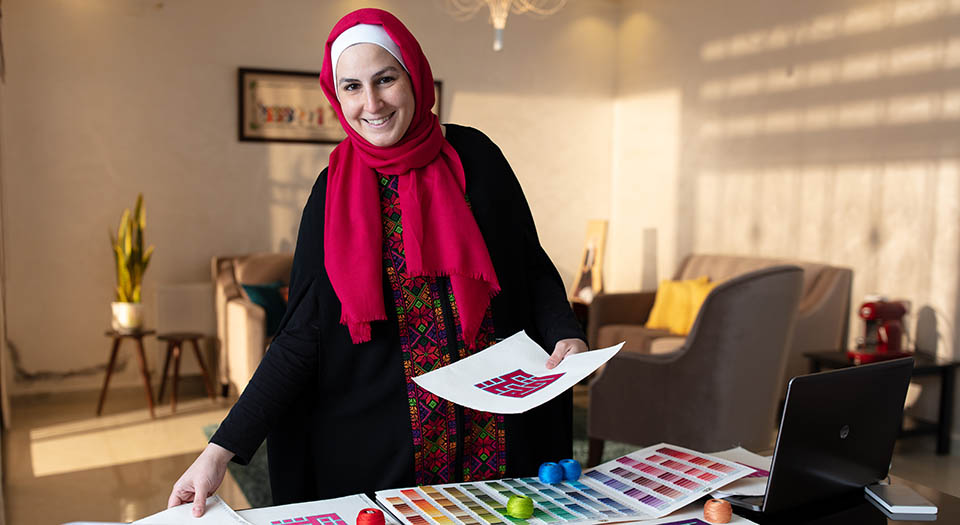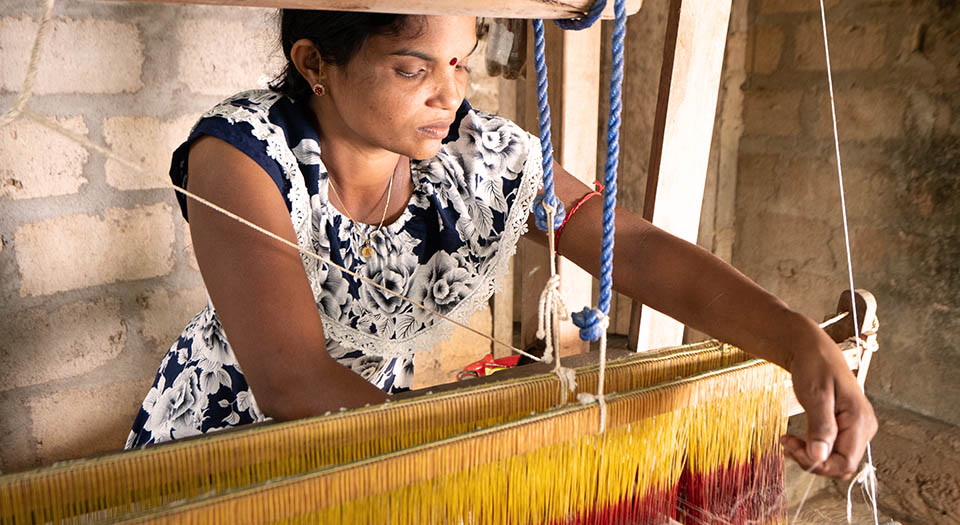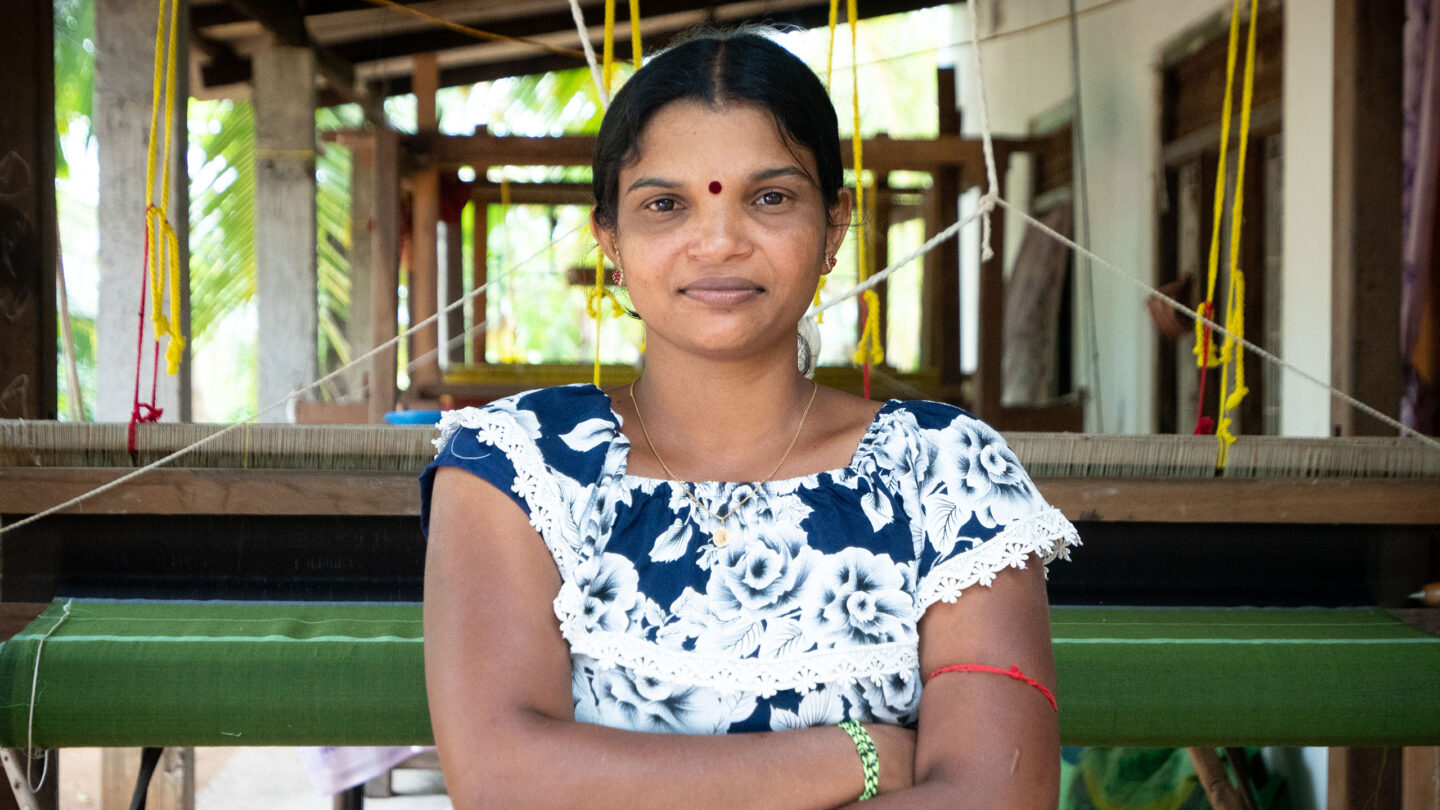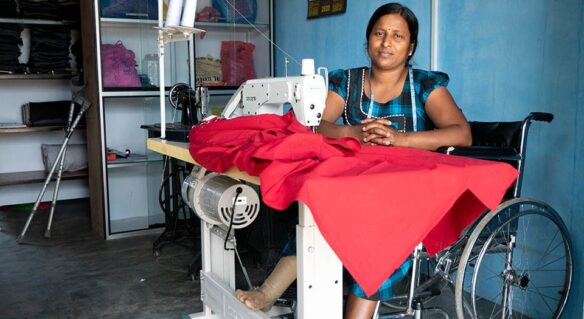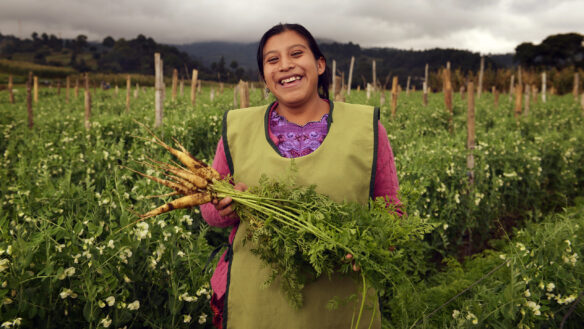Despite growing up hungry or with no education, across the globe women have shown themselves to be astute in business, with their success meaning they are able to support their families and even elevate whole communities out of poverty. The women included in CARE’s Women in Enterprise program, funded by the H&M Foundation, are committed, innovative and have shown incredible resilience. They are having a positive impact on their local communities, not least by employing other local women to lift them out of poverty too.
+33% increase in women taking up leadership positions.
Entrepreneurship is also empowering and through the program CARE saw a 33% increase in women taking up leadership positions within their communities. When given better access to finance and capital, women are also strong savers and borrowers.
Five key components for success
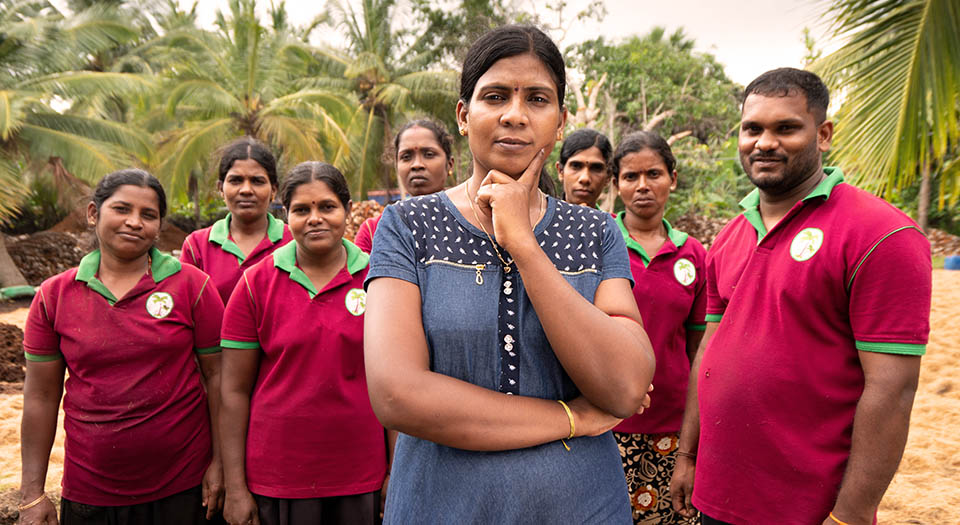
Through this program CARE has identified five key components for successful enterprise development amongst women living in low-income communities. These are:
- Strengthening skills
- Facilitating access to finance and capital
- Encouraging the power of groups and networks
- Improving the business environment
- Engaging men and boys
In the global Women Mean Business report, CARE sets out successes in each area, however; below are summaries of two key components:
- Access to finance and capital for women entrepreneurs is key. Bank account ownership more than doubled over three years within the program. There was also an increase in women taking out small business loans, thanks to new partnerships with finance providers, with 75% of women having repaid loans and the remaining entrepreneurs on track to repay.
- Engaging men and boys: As women have taken on increasing responsibilities with their businesses, 72% still receive no help at all from male family members in the household. Not only are women now running businesses – many providing employment to other women – they continue to do all the childcare, cooking and other household chores.
Arudselvi Jaicilin is a tailor from Sri Lanka. Her husband took part in gender sensitisation training for men with the aim of involving them in the entrepreneurship of the women.
“My husband gets the children ready for school in the morning and prepares breakfast and lunch. I have also taught him to sew, so he can help me with bulk orders in the business”, Arudselvi says.
DECADES OF PROGRESS UNDER THREAT
Whilst continuing to celebrate the achievements of women entrepreneurs and setting out the essential components for successful enterprise development with women living in poverty, the havoc of the global pandemic currently going needs to be recognized.
The coronavirus and the subsequent lockdowns are having a disproportionate impact on the very women entrepreneurs who have worked so hard to lift themselves out of poverty.
In Sri Lanka, 90% of women entrepreneurs from the program say their income has decreased and their supply chains are disrupted. In Guatemala, 96% say they do not have enough money for basic food items. Many of these women are now on a precipice, at risk of falling straight back into poverty. The COVID-19 crisis creates an even greater urgency for investing in women entrepreneurs.
“We will not stand by and watch decades worth of progress on fighting poverty and gender equality lost through this crisis.”
Reintje van Haeringen, Chief Executive of CARE Netherlands
“The international COVID-19 response needs to include a strong focus on the economic justice and rights of women. We will not stand by and watch decades worth of progress on fighting poverty and gender equality lost through this crisis. Not only do we need to invest in resources to support women, but we also need to help change entrenched social beliefs by working together with men”, says Reintje van Haeringen, Chief Executive of CARE Netherlands.
Pre COVID-19 the World Economic Forum predicted that it would take 257 years before there was economic parity between men and women. This will no doubt be pushed even further back as a result of the global pandemic. CARE cannot and will not wait. More investment in women entrepreneurs is urgently needed, now more than ever.
